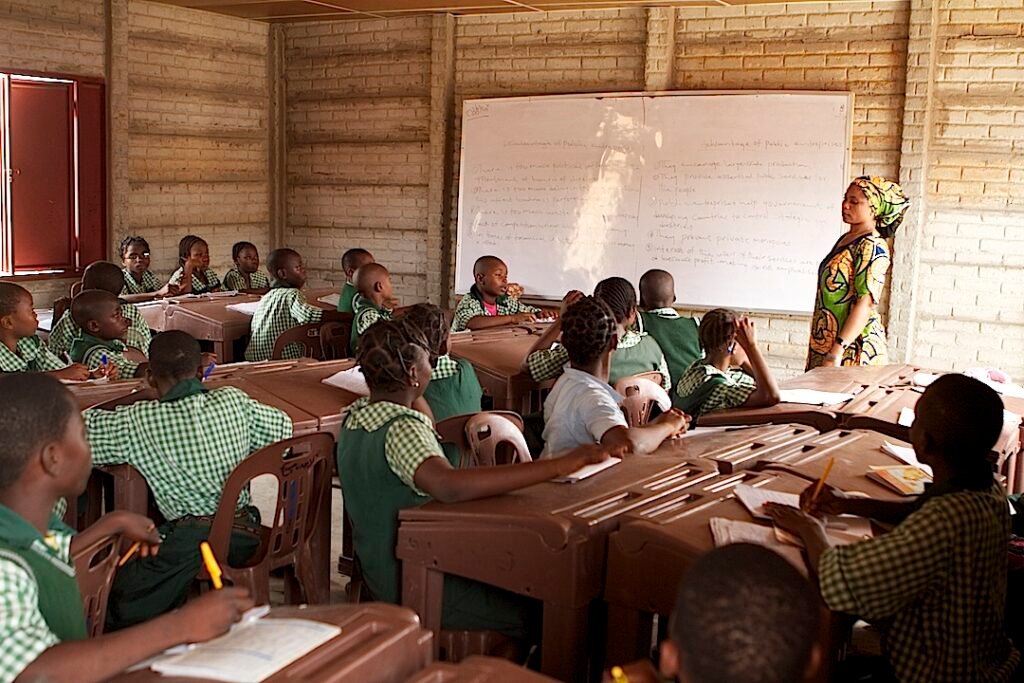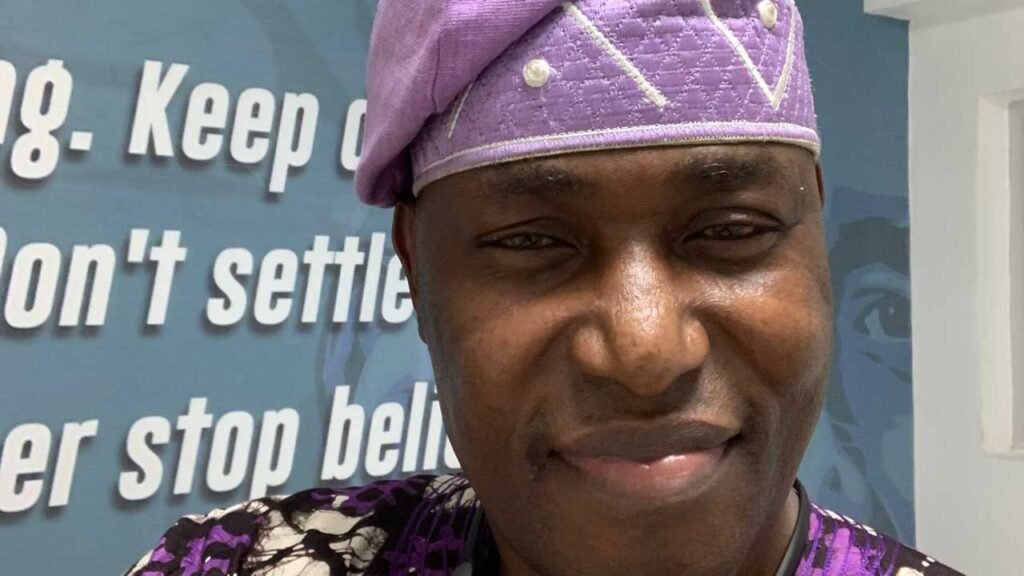At the recent 2025 Registry Annual Lecture and Award Ceremony held at Ekiti State University, Ado-Ekiti, former Managing Director and Editor-in-Chief of The Guardian Newspaper, Martins Oloja, issued a clarion call for a national summit on education. He urged the federal government to convene stakeholders across academia, policy, civil society, and funding to deliberate on urgent reforms in educational administration, quality, and financing.
In his lecture titled “Do We Need More or Better Tertiary Educational Institutions in Nigeria?”, Oloja argued that the challenges in Nigeria’s higher education sector are multifaceted and require a holistic, incisive response. He emphasised that restoring both the quality and quantity of tertiary institutions must be done hand in glove, not in silos.
Table of Contents

Reassessing Quantity vs Quality: Nigeria’s Educational Imperative
Oloja began by comparing Nigeria’s tertiary institution count and population base with global peers. He cited statistics from the World Higher Education Database, noting the United States has over 4,000 universities; India, around 3,500; China, more than 3,100; Brazil, some 1,200; Japan, 1,100; Russia, 1,000; Mexico, over 900; Indonesia, above 800; Germany, over 700; and France, more than 600. In contrast, Nigeria—despite being home to over 200 million people—currently hosts about 300 universities.
He contended that the nation must resist the temptation to choose between more institutions or better ones. Instead, a deliberate policy must guide the establishment of additional universities where needed, while simultaneously elevating the standards of existing ones. He admitted his own criticisms of his home state for having multiple under-resourced universities but suggested recent survey findings have tempered his stance, showing that more universities are justified—so long as they meet rigorous benchmarks.
To Oloja, the deficiency is not just in the number of institutions, but in how many are truly equipped to deliver globally competitive outcomes. He warned that proliferation without quality oversight could further deepen the crisis of employability, academic irrelevance, and institutional decay.
ASUU Crisis, Institutional Fragmentation, and Curriculum Reform
Turning his attention to the ongoing nationwide strike by academic staff (ASUU), Oloja appealed directly to President Bola Tinubu. He called on Tinubu to instruct the Ministers of Education, Labour, and Budget to take immediate, decisive steps to resolve the impasse. He described the protracted stand-off as “a symbol of suffering and shame for all tiers of government.”
Oloja drew from a provocative assertion by a South African teacher, who said that destroying a country does not require a bomb—lowering the quality of education and tolerating exam cheating is enough. He extrapolated the ripple effects: when doctors aren’t trained well, patients die; when engineers are poorly educated, buildings collapse; when economists and accountants err, money is lost; when judges or religious scholars are inadequately formed, justice and humanity suffer. The collapse of education, he said bluntly, is tantamount to the collapse of the nation.
He also raised the idea of specialised universities, particularly in sectors of national importance. For example, he noted, Nigeria still relies on servicing aircraft abroad. Rather than duplicate general courses across “mega” universities, he urged regulatory and funding bodies to encourage proposals for institutions uniquely tailored to priority industries. This, he argued, would sharpen curriculum relevance and link education more closely with employability.
Oloja lamented the prevailing “ordinariness” in many curricula, which he believed are disconnected from the evolving demands of the job market. He argued that universities routinely offer overlapping programmes without considering the changing needs of sectors or the skills gap. This, in his view, is a root cause of the dismal employability statistics plaguing Nigerian graduates.

From Lecture Hall to National Policy: Summit as a Turning Point
In his concluding challenge, Oloja urged the government to convene a national summit on education, administration, and funding. He insisted that such a gathering must go beyond technocratic discussions: it should be a staging ground for a new compact between the state, academics, students, and citizens—one that refuses superficial fixes in favour of structural transformation.
He warned that the educational crisis is too far gone for band-aid measures. As governments deploy more money without accountability or issue mandates without a strategy, the system continues to fracture. Nigeria must adopt long-term thinking, transparent funding models, and progressive accountability mechanisms.
University Vice Chancellor Prof. Joseph Babalola Ayodele, in his remarks, affirmed the timeliness of Oloja’s theme. He described it as a necessary provocation: as demand for university access surges, it is imperative to question whether the response should be indiscriminate expansion or strategic reinforcement of existing institutions. Meanwhile, the university registrar, Mr Joseph Ife Oluwole, encouraged attendees to leverage their skills to aspire to global standards.
Oloja’s proposal is not without precedent—many countries routinely convene sectoral summits to reimagine public policies. But for Nigeria, beset by recurrent strikes, resource shortfalls, and mismatched curricular outputs, the summit could become a turning point—provided the political will, expert commitment, and social consensus converge.
If Nigeria accedes to his challenge, the summit would need to articulate:
- A blueprint for how many new institutions are truly needed, and where
- Clear benchmarks and accountability systems for all universities
- A roadmap for resolving the ASUU–government impasse
- Strategies for curriculum renewal, especially in specialised and technical fields
- Transparent and sustainable funding models
- Mechanisms for multi-stakeholder oversight and implementation

For now, Oloja has thrown down the gauntlet: the time for incremental fixes is gone. Education, he warns, is the foundation on which every other national aspiration rests. Without credible reform, every sector will falter.
Join Our Social Media Channels:
WhatsApp: NaijaEyes
Facebook: NaijaEyes
Twitter: NaijaEyes
Instagram: NaijaEyes
TikTok: NaijaEyes
READ THE LATEST EDUCATION NEWS





